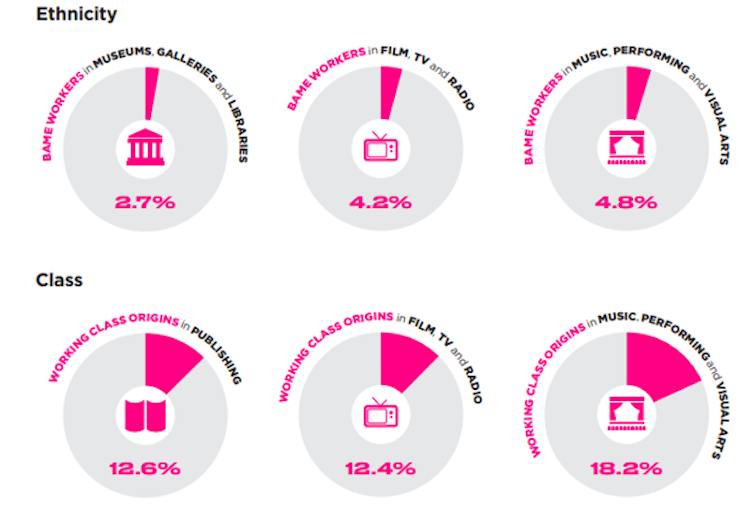British actor, Laurence Fox, has been all over the media recently, condemning black and working-class actors for being “annoying” in speaking publicly about inequality issues.
It all started when he was on a panel in the BBC show, Question Time and joined a discussion about the treatment of Meghan Markle, Duchess of Sussex, by the media.
When an audience member, mixed-race university lecturer Rachel Boyle of Edge Hill University, remarked that, as a “white, privileged male”, he failed to pick up on the racism directed against Markle, he rolled his eyes and accused her of being racist.
To call me a white privileged male is to be racist. You are being racist…
In his interviews since then, Fox – who represents the third generation of one of the UK’s most influential theatre families – has expanded on his political philosophy, most recently accusing film director Sam Mendes of “forcing diversity on people” by casting a Sikh soldier in his first world war epic 1917. This, Fox said in a recent podcast presented by James Delingpole, was “institutionally racist”. He went on to say:
The most annoying thing is the minute a black actor – it’s the same with working-class actors – the minute they’ve got five million quid in the bank, every interview they do is about how racism is rampant and rife in the industry. And with working-class actors: ‘There’s not enough working class actors.’ You weren’t saying that when you didn’t have a fucking pot to piss in were you? You weren’t standing up for the working-class actors until you’re now no longer materially working class.“
Controversial views, to be sure – and yet Fox is performing a sadly familiar and far from original role. As a well-known figure engaging in and seemingly enjoying an “attention economy”, why, we might ask, does Fox matter – and is there any point in amplifying these views?
For me, the value is in recuperative work. Not in recuperating him, but in correcting the narrative that inequality in the cultural industries isn’t a problem, and that all voices are heard equally. In thinking through Fox’s multiple media appearances, it’s critical to look not only at what is there, but also at what is left out. And in Fox’s case it’s evidence.
Lack of diversity
Recent reports on the state of the UK cultural industries evidence serious inequalities in relation to race, class and gender.
The 2018 Creative London report Panic! Social Class, Taste and Inequalities in the Creative Industries found that in the industries of film, television and radio, only 4.2% of workers identified as Black, Asian and minority ethnic (BAME), and only 12.4% of those working in film, TV and radio were from working-class social origins.

On stage and screen, the union, Equity, representing performers and creative practitioners, launched its Play Fair campaign in 2016, in order to “challenge the industry on the persistent under-representation of diversity, and discriminatory practice in the casting process”.
Articulating the experiences of members, the report notes that:
The lack of diversity on our stages, screens, airwaves and online is one of the biggest issues our industry faces, and members from diverse backgrounds have fewer working opportunities as a result.
In September 2019, the Ofcom annual Diversity and Equal Opportunities in Television report noted that “The UK’s television industry is strongly skewed towards people from privately educated backgrounds.”
In 2018, the Writers’ Guild of Great Britain published a study of the impact of gender on equality of opportunity for screenwriters and key creatives in the UK film and television industries.
The results were conclusive: in television, the percentage of episodes written by women between 2005-2016 stood at a mere 28%. In film, the figures were significantly worse, finding that the percentage of all working female screenwriters over this ten-year period was just 16%.
Whose story, whose voice?
Another question that is relevant here relates to power. When analysing TV performances, for example, I ask my students to think carefully about whose story is being told, by whom, from what perspective and for what purpose.
The ability and the privilege to speak up, is one fraught with power imbalance. Responding to Fox’s statement, actor Maxine Peake tweeted, questioning Fox’s motivation:
Whipping up emotion by playing the populist is easy when you’re given the voice to do so. Seeing and understanding that your own experience of the world isn’t necessarily that of others, is harder work.
While Fox can’t control what he referred to on Question Time as his “immutable characteristics”, he can, if he’s willing, recognise his significant advantages.
Fox’s purposeful and public provocations, such as his recent Tweet, display his gamification of the debates he’s chosen to enter.
It would seem that his cup really doth overflow, for the time being at least. But much is at stake here. Inequality and issues of power and privilege are important and need to be viewed critically and carefully.
While Fox may have a variety of platforms from which to speak, it’s the evidence that needs to take centre stage.
Beth Johnson, Associate Professor in Film and Media, University of Leeds
This article is republished from The Conversation under a Creative Commons license. Read the original article. Image courtesy of iStockPhoto.com.






